Ertach Kernow - Cornwall's Newlyn Riots 125 years on
Cornwall's Newlyn Riots in 1896 illustrated how important fishing was to the economic life of Newlyn and around the Cornish coast and had been since time immemorial. No doubt many people will have taken an interest in the recent troubles around Jersey in the Channel Islands. This relates to French fishermen having questions regarding licencing enabling them to fish in Jersey’s territorial waters.
Fishing was also highly newsworthy 125 years ago this week. A precursor to the Icelandic Cod Wars, that took place between English fishermen and Iceland between 1958 and 1976, was in 1896 the news of fishing boats from Grimsby being boarded by Danish naval vessels just for being in Icelandic territorial waters.
From the 17th May 1896 a major fishing related incident erupted here in Cornwall, between Cornish fishermen at Newlyn and those from Lowestoft, fishing in Cornish waters on a Sunday. Cornwall was staunchly Methodist, and by 1851 attendance at Methodist Chapels exceeded those of the Church of England. The fishermen at Newlyn were so incensed by these crews breaking Cornish traditions, also importantly effecting their livelihoods, that the situation unravelled resulting in violence and unrest throughout the local community.
Fishing was the primary source of employment at Newlyn, along with the associated jobs which were created through the fishing industry. Anything having an influence on this not only effected the fishermen and their families, but the village as a whole. Fishermen from the eastern seaboard of the Britain, including Lowestoft, Great Yarmouth and other places would fish the Cornish fishing grounds along with local vessels. Although there had been issues previously these had been mostly resolved or overlooked without major friction. There tended not to be problems whilst supplies of fish were plentiful and market prices stable. However, what became used as an excuse for action was the breaking of the Sabbath, by fishing on a Sunday by east coast fishermen, and the subsequent economic consequences. Due to the Cornish fishermen not fishing on a Sunday less fish was normally available on the Monday markets with better prices and slightly lower stable prices from Tuesday onwards. Larger fish availability at market on the Monday would lead to much lower fish prices on the Tuesday. The local tradition of not fishing on a Sunday, apart from religious reasons, ensured a day of non-fishing prevented a glut on the markets, holding prices steady and the sale of the whole catch throughout the week.
Reports of what became known as the Newlyn Riots was circulated in newspapers around Britain and would be raised in Parliament. Today social media is active in raising support for protests, back in 1896 it was the telegraph. Protest supporters had telegraphed messages to fishermen in Mousehole, St Ives, Porthleven and other local fishing communities. May had started badly for Newlyn with a Cornish fishing boat being rundown and sunk by a steamship as it returned to Newlyn with its catch. A few days before the riots started, newspapers had reported that a glut of mackerel had led to thousands of fish being carried away for manure. Perhaps this excess had a downward effect on fish prices and added fuel to the forthcoming unrest. The Cornish fishermen felt that they had remained passive long enough and it was time for action.
The riot started when about forty fishermen backed by up upwards of one thousand local people marched to the harbour. They boarded the boats of the east coast fishermen, known locally as 'Yorkies', throwing the catches overboard. The total catches of 15 vessels were thrown over and also from other vessels amounting to an estimated 100,000 fish. Initially there was no retaliation, and no assault was made on the English crews by the Newlyn fishermen. Eventually an English fishermen retaliating in protest was beaten up leading to a full-on fight between the two groups. The increasingly bitter fighting then led to the police arriving at the harbour and they along with the harbourmaster tried to prevent further ‘Yorkie’ boats from arriving by sending out a messenger boat. Mr Strick the Harbourmaster in his steam launce Merlin was intercepted and prevented from passing messages by a Cornish vessel.
There was a certain amount of entertainment for those on shore with Cornish boats chasing ‘Yorkie’ boats around Mount’s Bay, with an exchange of ballast rocks being hurled between vessels. Onshore eventually all licenced premises were ordered to close after an incident and many premises boarded up. Sadly, no images of the events seem to have survived as the negatives of all press photographers were seized and destroyed to prevent it being known in the papers. Councillor Hill at Penzance thought it an opportunity for Penzance to increase its future trade as it may be driven away from Newlyn. Messrs Hobson & Co, fish buyers, who supported weekend fishing, had their timber office destroyed and thrown into the harbour. A chain had been placed across the harbour entrance to prevent entry and exit by any ‘Yorkie’ vessels. Local MP Thomas Bolitho had sought to help settle the issue, but although popular he was unsuccessful in calming the situation. Sympathy from Penzance was far more limited, and the situation intensified with news that catches from ‘Yorkie’ vessels were being landed at Penzance and several hundred Cornish fishermen marched on Penzance Harbour. Repelled by the police who then requested magistrates seek military assistance led to several hundred soldiers from the Plymouth based Berkshire Regiment travelling by train to Penzance. With the rioting and fighting continuing and the police unable to maintain control the military managed to force their way through and take control of the Newlyn harbour area. Fighting had then intensified, and a number of more serious injuries had been received on both sides.
Assistance from other Cornish fishing communities bolstered the Newlyn fishermen’s resolve. However, the big guns had been brought to bear. The arrival of Royal Navy destroyer HMS Ferret along with threats to sink Cornish fishing boats if the rioting continued ended the violence. The overall situation was not resolved, and Cornish fishermen continued to campaign for an end to fishing from Saturday night through to Sunday night. A compromise that put an end to the situation, but leaving both parties displeased was reached. This stopped fishing overnight on a Saturday but allowing it to continue on Sundays.
Although this incident was said to have been primarily based on religious beliefs, the reduction in income was a major concern. Another issue, perhaps resonating with many coastal communities today, was the number of incomers to their area. Today it’s not fishing, but housing that is the cause of much anger with young Cornish people and families, relating to purchase of second houses throughout Cornwall. Stories and lessons to be learned from the past are an important part of sharing history to modern audiences. Renowned Cornish playwright Nick Darke brought this historic incident to public attention in his 2000 play The Riot, performed by the National Theatre and the Cornish based internationally well-known Kneehigh Theatre.
![Fish market, Newlyn, Cornwall Fish market, Newlyn, Cornwall [Morrab Library]](https://www.cornwallheritage.com/wp-content/uploads/2021/05/Fish-market-Newlyn-Cornwall-1024x678.jpg)
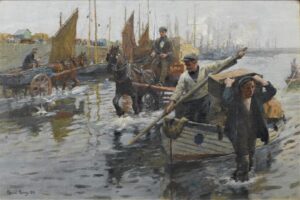
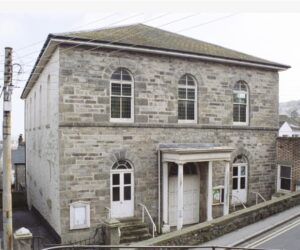
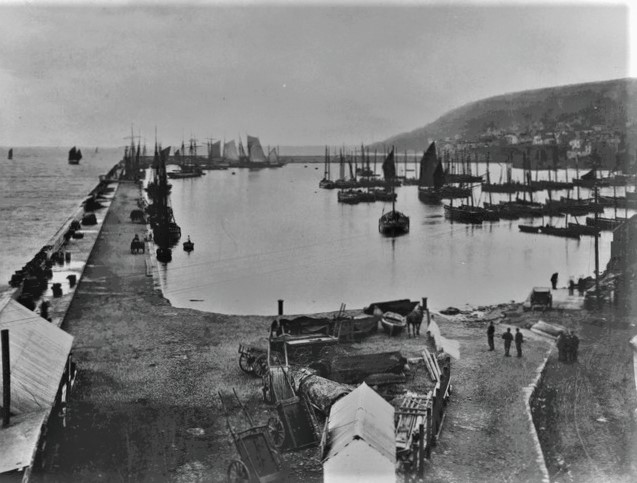
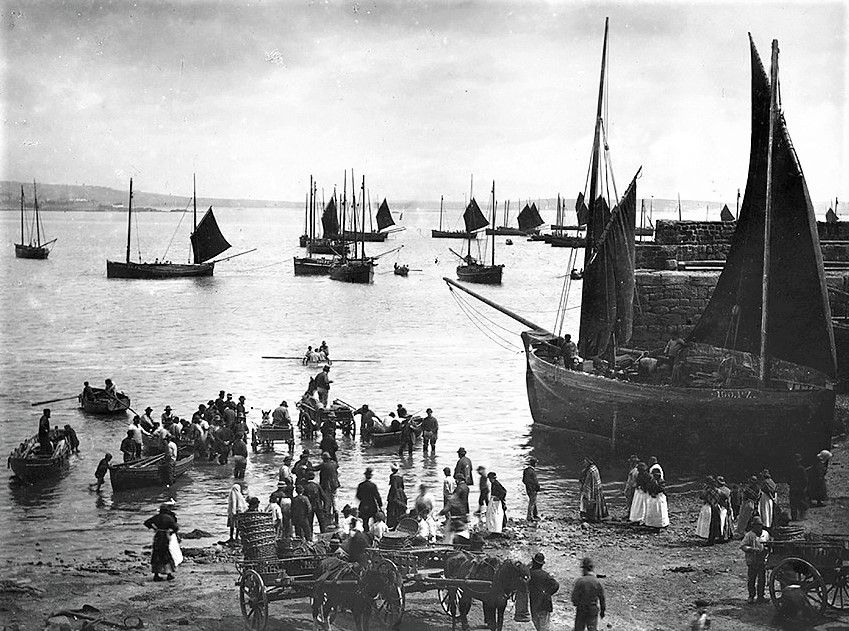
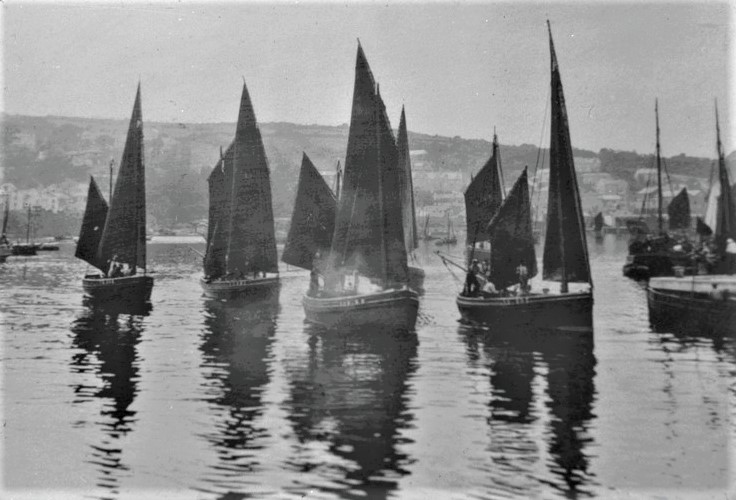
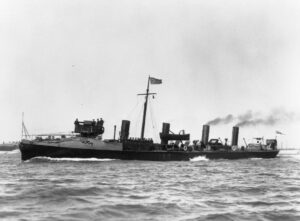
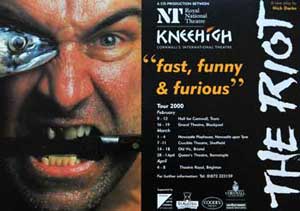
![[47] Voice - Ertach Kernow-190521A - The Newlyn Riots 125 years on [S] Ertach Kernow - The Newlyn Riots 125 years on](https://www.cornwallheritage.com/wp-content/uploads/2021/05/47-Voice-Ertach-Kernow-190521A-The-Newlyn-Riots-125-years-on-S-234x300.jpg)
![[47] Voice - Ertach Kernow-190521B - The Newlyn Riots 125 years on [S] Ertach Kernow - The Newlyn Riots 125 years on](https://www.cornwallheritage.com/wp-content/uploads/2021/05/47-Voice-Ertach-Kernow-190521B-The-Newlyn-Riots-125-years-on-S-229x300.jpg)